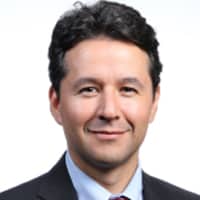Diabetes Treatment Center
World Class Diabetes Care
The Grady Diabetes Center, established in 1960, is the largest outpatient diabetes center in the Southeast, providing world-class diabetes care and education. Each year, we treat nearly 14,000 patients suffering from Type 1 or Type 2 diabetes.
More than 9 percent of Americans have the disease and the center’s mission is to help high-risk patients and those who have complex cases manage their disease effectively. The clinic does this by offering comprehensive care and treatment for both diabetes and the complications that accompany it, and by providing comprehensive education to help people improve their health through lifestyle changes.
Though the physicians, nurses, and educators who make up the Grady Diabetes Center are experts in this all-too-common disease, they really specialize in meeting each patient’s unique needs. Our goal is to restore normal routines as quickly as possible.
Why Choose Us
Most primary care physicians understand how to treat basic diabetes. Grady Diabetes Center specialists are experts in helping patients manage more complex or higher-risk cases that require comprehensive care.
We are pioneers in treating diabetics and the complications associated with their disease.
All our endocrinologists, specialists in the endocrine system that produces hormones, are board-certified. Our registered nurses are certified diabetes educators. And our dietitians, pharmacists, social workers, and podiatrists are all experienced in the care of diabetic patients.
This team has unparalleled experience.
What We Treat
The Grady Diabetes Center treats both forms of diabetes and the associated complications, including:
People with Type 1 diabetes cannot produce insulin. Their bodies’ immune system attacks and destroys the pancreatic cells that produce the hormone insulin. People with Type 1 diabetes must take insulin daily to survive. This type of the disease is typically diagnosed in childhood or early adulthood.
Learn more about Type 1 diabetes here.
The most common type of diabetes, Type 2 occurs when a person’s blood glucose or blood sugar is too high. In Type 2 diabetes, a person’s body does not produce enough insulin or does not use insulin well. Type 2 diabetes typically occurs in people who are overweight or physically inactive.
Learn more about Type 2 diabetes here.
This is a common cause of vision loss among people with diabetes and a leading cause of blindness among working-age adults.
Learn more about diabetic retinopathy here.
This is a type of nerve damage that can occur in diabetics. Typically, high blood sugar can injure nerves throughout the body, commonly in legs and feet.
Learn more about diabetic neuropathy here.
Open sores or wounds occur in about 15 percent of diabetics, most commonly on the bottom of the foot.
Learn more about diabetic foot ulcers here.
Make an Appointment
Call (404) 616-1000, Monday-Friday, from 6 a.m. to 11 p.m. to schedule your appointment.
If you are an existing Grady patient and have a MyChart account, visit MyChart to request your appointment online.
Location and Directions
Grady Memorial Hospital
80 Jesse Hill Jr Drive SE
Atlanta, GA 30303
Ground Floor
Monday - Friday: 8 AM - 4:30 PM
(404) 616-1000 (Main)
(404) 616-1000 (Appointments)
Parking is available
Public Transportation
- Georgia State Station (0.1 Mile)
- MARTA Blue Line
- MARTA Bus 99
Our Services
Grady offers services to help patients with diabetes manage their disease both with medical care and education:
Grady Diabetes Center medical staff provides patients with medical support they need – both for the disease and its complications. The center operates five days a week and takes new patients on Tuesdays.
Our educators provide patients with training on how to inject themselves with insulin and how to use the glucose monitoring systems and insulin pumps that are available on the market. The educators also offer training on the kinds of lifestyle changes that can help diabetics live fuller lives.
Research
The Grady Diabetes Center has been involved in a wide range of research studies and trials that have helped to redefine the way this disease is treated.
Our Doctors
Every hospital treats patients. At Grady, we strive to treat them better, more efficiently, and more effectively. Our Diabetes Center is staffed by physicians, nurses, and other staff specialized in treating conditions that severely limit patients’ lives. This mission to care for all who need us attracts physicians from across the nation who are drawn to Grady because we test the limits of medicine through innovation and research.
Our zeal for innovation has given Grady a national reputation for medical advances in orthopedics, trauma care, burn, stroke, diabetes, infectious diseases, women’s health, sickle cell, and other conditions treated by specialists in our centers of excellence. Access to all these accredited practices is available to every Grady patient and our collegial environment means that specialists routinely help to care for their colleagues’ patients.
Though clinicians are drawn by Grady’s reputation, most are employed by the Emory and Morehouse schools of medicine, which staff our medical services. Grady is one of a handful of U.S. health systems whose patients are cared for by faculty members of two medical schools. This reinforces our commitment to ongoing innovation.
Endocrinology, Diab-Met.
Diabetes & Metabolism, Endocrinology, Internal Medicine
Diabetes & Metabolism, Endocrinology, Internal Medicine
Diabetes & Metabolism, Endocrinology, Internal Medicine
Diabetes & Metabolism, Endocrinology, Internal Medicine







